Chemistry
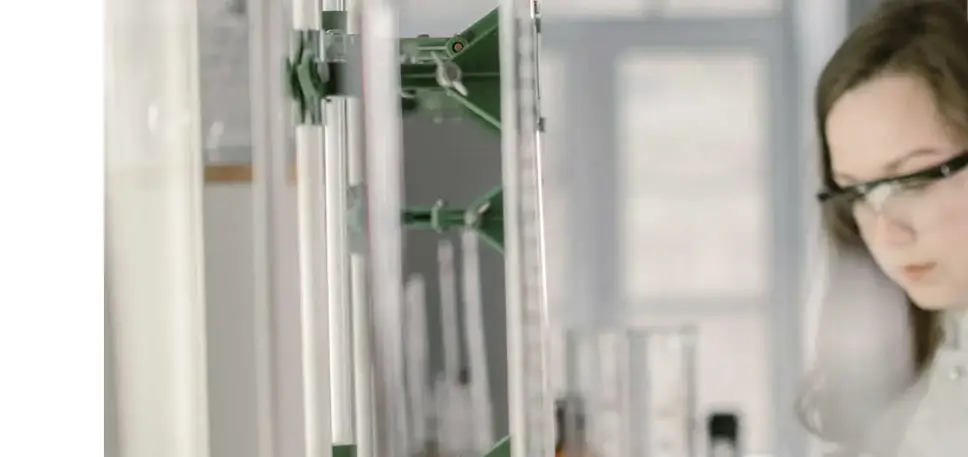
Chemists working in the research and development of new medicines will interact and collaborate with many other scientists from various disciplines.
Within a multidisciplinary project team, scientists pool their knowledge of the compound they are working on. For example, biologists’ knowledge of the receptor or enzyme involved in the disease, pharmacologists’ awareness of how medicines interact with tissues and organs and the chemists’ understanding of molecular structure and properties are combined with the specialist knowledge of those working in the area of drug metabolism, who will be able to advise on the likely distribution and metabolism of the molecule in the body.
Early stages of the discovery process
At the earliest stage of the discovery process, lead compounds are sought. Chemists working within computational chemistry and chemoinformatics can use software to design virtual molecules which might interact with the target proteins. Chemical technologists familiar with robotic or automated techniques, and related chemical technologies, may then make small quantities of 100s or 1000s of related chemical compounds. Promising molecules, identified by biological screening, are made in larger quantities by a synthetic organic chemist, to enable further studies to be carried out to assess their suitability as leads. This may include a number of other screen types, for example to check out target selectivity or metabolic susceptibility.
Synthetic organic chemistry/medicinal chemistry
Chemists working in synthetic organic chemistry/medicinal chemistry, will be optimising leads; that is making small changes to the molecule so that it has the required biological activity but without any unwanted effects. Frequently, multi-step synthetic routes are used to produce further quantities of the compound, in gramme quantities. Biological results from tests on these compounds, and information from other studies, will be used to decide what changes to make to the structure of the molecule to optimise it.
Development chemists
A candidate molecule is selected for development once it matches the criteria identified for a promising drug molecule and is free from known adverse effects. Development chemists improve and scale up a synthetic route to produce the compound on a much larger scale – several kilogrammes at a time. Alternative synthetic routes will be investigated until a safe, efficient and reliable method is found.
As development of the potential drug continues, transfer of the process to manufacture takes place. Development chemists work with chemical engineers and manufacturing colleagues to achieve this.
Analytical chemists
Analytical chemists determine the identity and purity of samples that synthetic chemists make, solving problems relating to chemical structures, and developing methods of checking concentrations. Analysis is carried out using a range of techniques, but Nuclear Magnetic Resonance (NMR) spectroscopy and mass spectrometry linked to high performance liquid chromatography remain the most powerful methods for structural deduction and purity confirmation. The structure of any by-products which are produced must also be identified and quantified.
Physical chemists
Physical chemists will also be involved throughout the Discovery and Development process, with investigating the physical properties of compounds to enhance the effectiveness of new drugs and the chemical process used to manufacture them. This will include studies on acidity, water and fat solubility, crystal form and other properties.
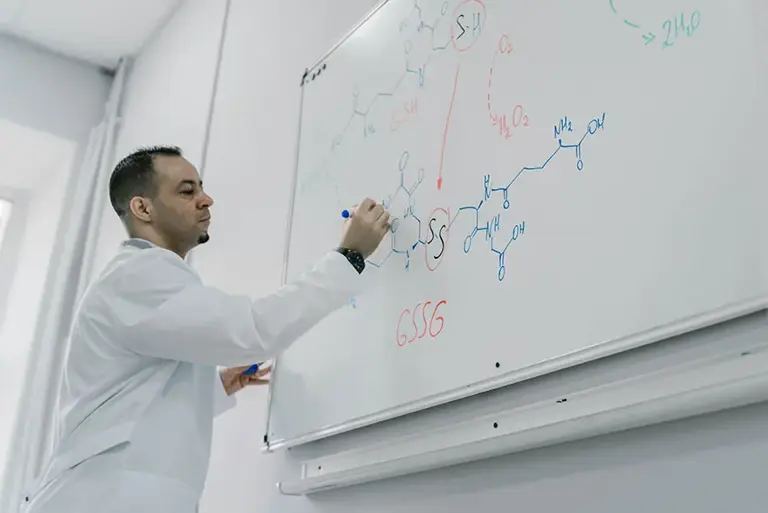
Analytical chemists work at every stage of development of a medicine, from identifying the structure of a compound that has been made for the first time, to checking the purity of a batch of medicine that is about to be released for sale.
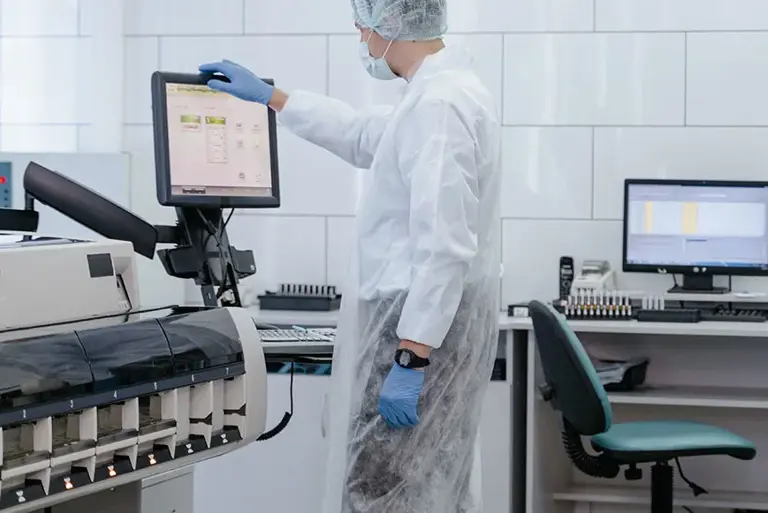
Chemical technology is about making large numbers of similar compounds to test as possible medicines.
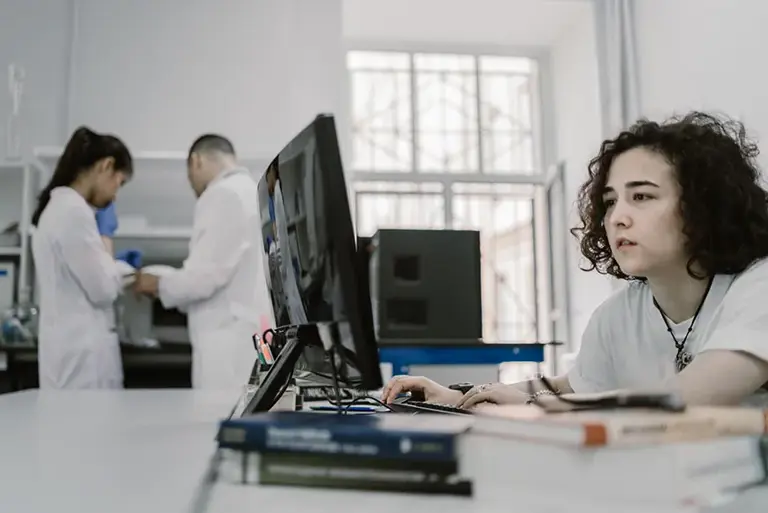
Computational chemists work closely with synthetic medicinal chemists, biologists, people working in drug metabolism and structural biology as part of a project team.
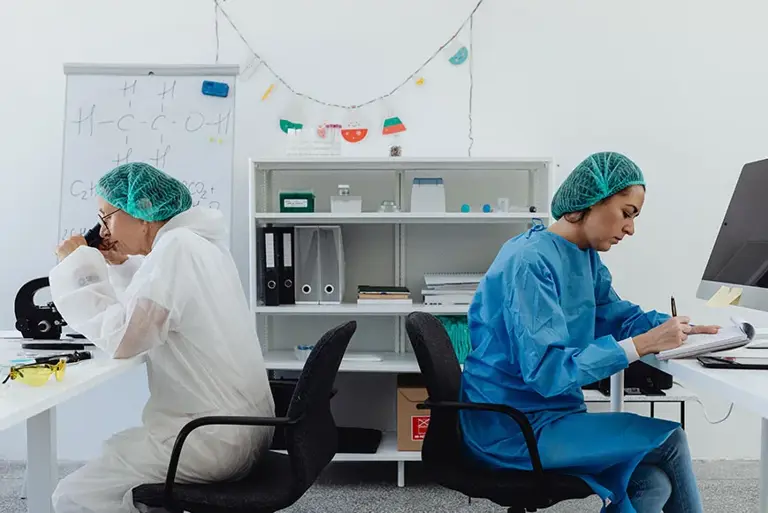
A chemist working in synthetic organic chemistry / medicinal chemistry makes new chemicals that, hopefully, will have the required biological activity.

